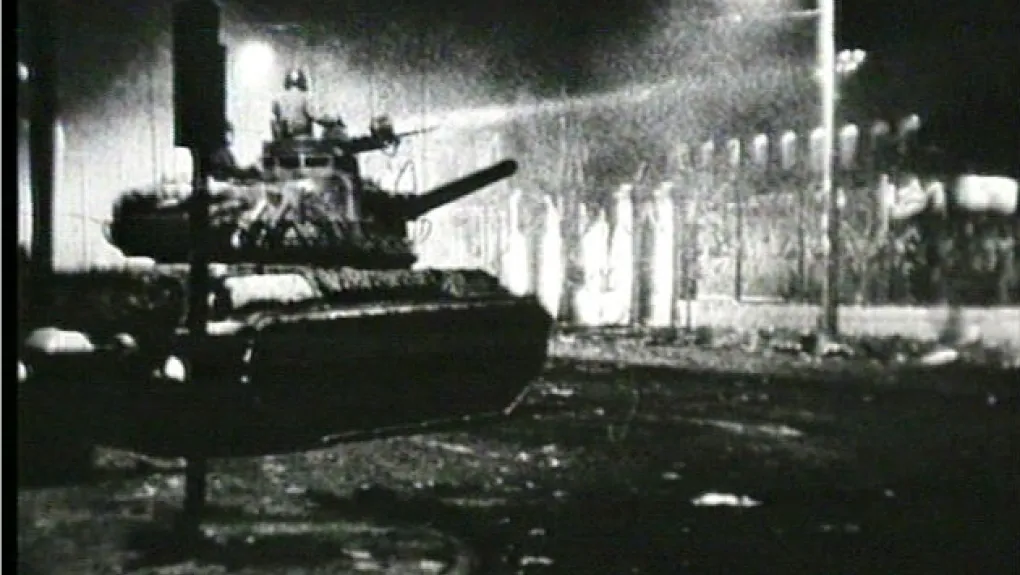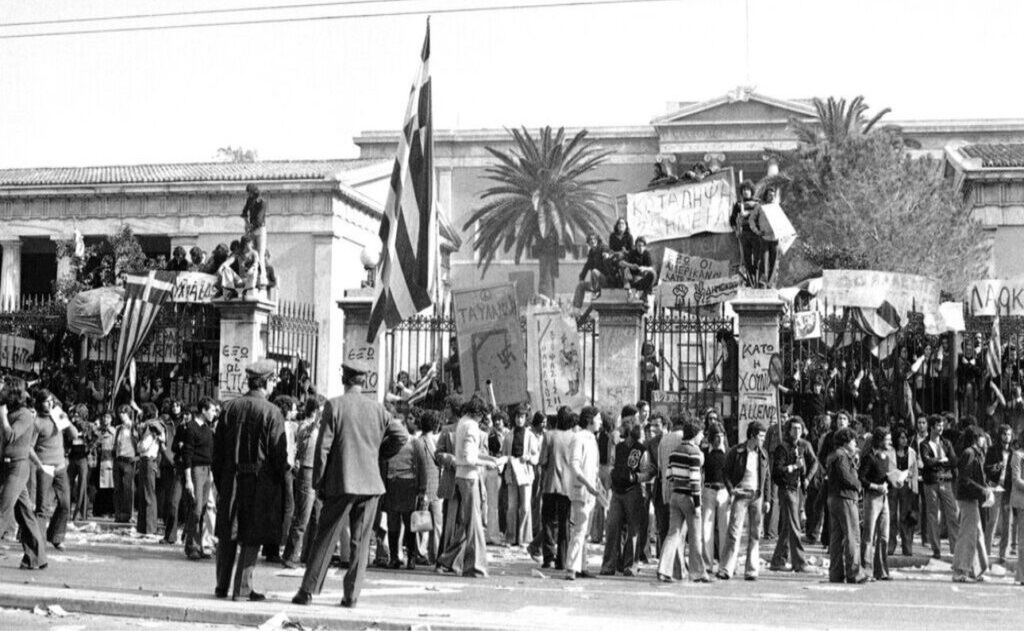By Maria Papagiannopoulou,
Greece celebrate the anniversary of the 1973 student uprising at the Athens Polytechnic on 17 November. From 21 April 1967 to 23 July 1974, it was a massive student demonstration against the military junta that had ruled Greece. This event was one of the most significant popular insurrections that marked the end of Greek dictatorship and a clear shout for freedom and democracy. But let’s try to take a step back in history.
After World War II, Greece was devastated economically and marked by political unrest. Several governments followed one another until 1965 when King Constantine II, who reigned as the last king of Greece from March 1964 until the abolition of the Greek monarchy in 1973, decided to withdraw confidence in the Papandreu government from the central coalition. This event is known as the Apostasia or Royal Coup and is used to describe the beginning of a long period of political turmoil that led to the establishment of military rule in 1967.
On April 21, 1967, at dawn, Greece awoke to the sound of army tanks, gunshots, military hymns playing on the radio, and an announcement:
“The Greek armed forces take over the management of the country”. Colonel George Papadopoulos, Brigadier General Stylianos Pattakos, and Nicholas Makarezos ordered a coup in Athens that day. Since that time, everything has changed for the Greek people. People of all political backgrounds, especially from the Greek left, were arrested, imprisoned, or exiled for fear that Greece would fall to the communists.

The government quickly abolished civil rights such as freedom of speech and instituted strict censorship of radio, newspapers, and television. The dictators launched a campaign to build public buildings, build schools, hospitals, factories, stadiums, and roads. For some Greeks, they may be satisfied for this reason, but that is not enough to agree with what they are doing in this country. The Colonel’s government, trying to control all aspects of politics, even banned student elections at the University, choosing union leaders not elected by the national student union. They also impose military service on students they consider hostile to the regime.
These actions have further increased anti-government feelings among students.
Greek students launched the first protests against the government in February and March 1973. On November 14, 1973, students protested at the Faculty of Law and entered the Polytechneio in Athens. They built a radio by jury using materials found at the university to deliver a message to the town. “The Polytechnic is here! It is the radio of the free and belligerent students, of the free and belligerent Greeks! This is the saying that resounds, the echo of peace and freedom. By November 16, the university was packed with people who wanted to join the protest.
Suddenly, the police came to arrest the people entering the building and asked them to leave, threatening them with violence. But tensions have not stopped, and protesters have entered the Polytechnic campus. For this reason, the authorities decided to call up the army, and from 1:
On November 17, around 3 o’clock, a tank stopped in front of the gate. Police repeatedly asked to get out of the building and leave but the protesters were confronted by the authorities. So, the government tanks broke through the gates of Polytechneio around 3 pm: At noon inside, many people were killed or injured. Attempts to ask the army to stop were futile: From inside the building, the radio host began begging the authorities, calling them “brothers” in an emotional voice and singing the national anthem along with other protesters. These actions have further increased anti-government feelings among students. This tragic ending that helped the colonels’ regime came a few months later, after the failed coup attempt in Cyprus that led to the Turkish invasion of the island on 20 July. 1974.
Every year, demonstrations and activities are held in honor of students and all the protesters who, with their courage and determination, fought against a regime that has left a black memory. darkest and saddest in Greek history.
Reference
- 17th of November, A day to remember. Balkan hotspot, Available here




